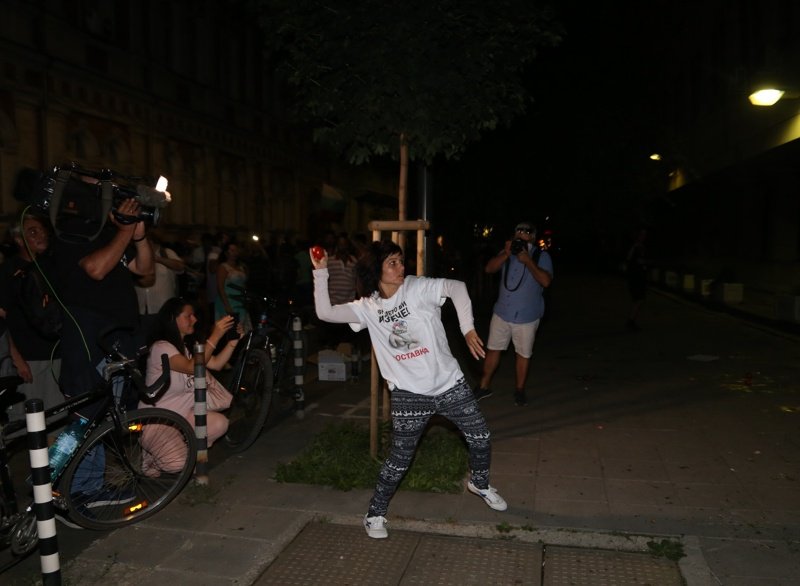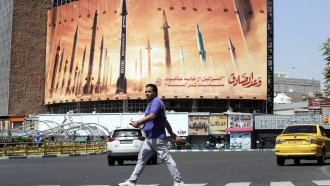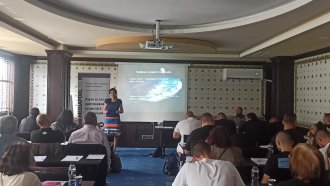Anti-government protests demanding the Cabinet’s resignation and that of Prosecutor General Ivan Geshev continuing across Bulgaria, but PM Boyko Borissov is finding new ways to justify staying in power, including by drafting a new constitution.
The procedure for adopting a new constitution is quite lengthy. It takes at least 5-6 months to begin convening a Grand Assembly – needed to adopt a new constitution. The Grand Assembly itself could theoretically take forever to complete the task of passing the new fundamental law. During this whole would-be process, Borissov would stay in power on a technicality, likely past his regular term expires.
The move to propose a new constitution was sudden and surprising to many. It is unclear how long Borissov’s party, GERB, have been working on the project. Justice Minister Daanail Kirilov declared a new constitution had been in the works since 2014, and this is the finished product. A few days later, Foreign Minister Ekaterina Zaharieva, who is tasked with justice reform, for which she also carries the title Deputy PM for Justice Reform, said the proposal is a result of one month’s work.
Whatever the case, the document is full of mistakes and inconsistencies, which she herself dismissed as the document was merely a draft. Putting mistakes aside, however, Borissov’s constitution provides a decisive addition, which is bizarre to say the least. The document gives the judiciary and the Prosecutor General the right of legislative initiative.
The texts, besides baffling, are a blow in the face both to protesters and the EU. For protesters, the Prosecutor General – together with this PM – are at the very base of the deep-rooted corruption in the country, against which the protests are happening. The demands for both their stepping down is seen as the only possible first step towards achieving any change.
In terms of Bulgaria’s EU partners, expanding the scope of powers of the Prosecutor General seems absurd and cynical. Ever since Bulgaria’s accession to the EU, it – through various mechanisms for reviews and assessment – has pointed to the position of Prosecutor General as a crucial problem in the Bulgarian justice system. Although this particular Prosecutor General – Ivan Geshev – has proven himself as an exceptionally problematic one, nothing he has done even touches the boundaries of his powers per the law. The figure of the Prosecutor General in Bulgaria is modeled after its predecessor from the totalitarian state. The position is entirely unaccountable and free to use the powers of the office as he sees fit.
For now, however, the idea for a new constitution seems more of a bluff and a way to buy time. For one thing GERB did not formally submit it to Parliament. Although it organized a showy photo op to mark the occasion, formally, the party merely submitted the draft constitution in the form of a letter to MPs. In order to begin the actual legislative procedure, the draft should be submitted as an actual bill. Asked to comment on this Ekaterina Zaharieva said GERB will wait to see if they can get the necessary support by MPs before deciding to take the steps to a formal procedure. The Parliament is expected to return from summer leave on September 2.
Meanwhile, protests are in their 42 day, and nowhere near backing down. Protesters still demand the resignation of the government and Prosecutor General Ivan Geshev and are ignoring any attempts from the PM to offer something else instead: be it removal of several ministers, as he tried about a month ago, or massive targeted financial giveaways, masked as coronavirus economic impact relief measures.
Several key intersections in the capital Sofia remain under 24/7 blockade with protesters spending the night in tents. Another intersection in Sofia was blocked on Monday where conflicts arose between protesters and passing cars. The police, who tend to let cars past through the intersection, although it is packed full of protesters, were actively ignoring the encounters, which were turning slowly into clashes. One case sparked backlash on both sides in particular, when a woman tried to drive through the protest with her husband on the passenger seat and her two children in the back.
On the next day the protesters took another route as it was established that counter protests were registered along the normal route. Instead, protesters ended up in front of the Ministry of Interior building, pelting the building with tomatoes and eggs and demanding the resignation of Minister of Interior Hristo Terziyski. Protesters blame the police’s governing body of purposefully mishandling its duties regarding citizen security.
Ключови думи
За честна и независима журналистика
Ще се радваме, ако ни подкрепите, за да може и занапред да разчитате на независима, професионална и честна информационно - аналитична медия.
 0 коментара
0 коментара
Екипът на Mediapool Ви уведомява, че администраторите на форума ще премахват всички мнения, съдържащи нецензурни квалификации, обиди на расова, етническа или верска основа.
Редакцията не носи отговорност за мненията, качени в Mediapool.bg от потребителите.
Коментирането под статии изисква потребителят да спазва правилата за участие във форумите на Mediapool.bg
Прочетете нашите правила за участие във форумите.
За да коментирате, трябва да влезете в профила си. Ако нямате профил, можете да се регистрирате.




